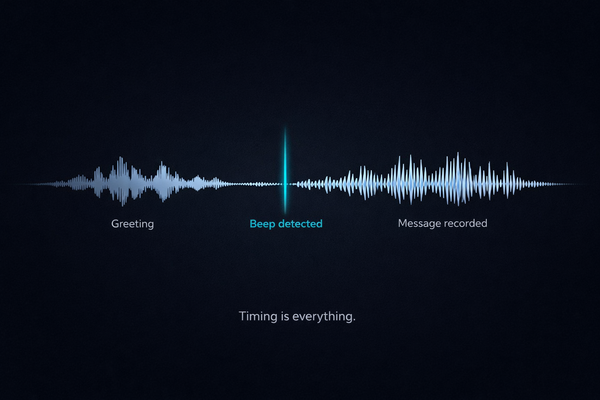AI in Debt Collection: Use Cases, Benefits, and Future Trends

AI in debt collection is changing the way companies handle unpaid bills. From calling customers to managing payment plans, artificial intelligence is helping businesses recover money faster and more fairly. With simple tools, smarter systems, and helpful support, AI makes debt collection easier for everyone, both companies and customers.
Debt collection has always been a difficult job. It needs time, effort, and careful communication. But with AI, companies can now automate the process, respond to customers quickly, and make better decisions. This article explains how AI is used in debt collection, the benefits it brings, and what the future looks like.
What Is AI in Debt Collection?
AI in debt collection means using artificial intelligence to manage unpaid accounts. It includes tools that automate calls, send reminders, answer questions, and suggest payment plans. These systems can understand customer behavior, spot risks, and make smart choices based on data.
Instead of waiting days to reach a person, AI can contact hundreds of customers in minutes. It also helps customer support teams work better and focus on complex cases.
Use Cases of AI in Debt Collection
AI is being used in many ways across the debt collection process. Below are some of the most useful applications:
1. Automated Customer Support
One of the biggest use cases of AI customer support in debt collection utilities is handling large numbers of customer questions. AI-powered chatbots and voice bots can talk to customers 24/7, explain billing issues, and guide them through payment steps.
- Reduces wait times.
- Handles common questions quickly.
- Works across channels like phone, chat, and email.
2. Personalized Payment Reminders
AI can send smart reminders that fit each customer’s behavior. For example, if someone always pays late, the system can send earlier alerts. If a person prefers SMS over email, the AI can adjust.
- Increases the chances of getting paid.
- Avoids annoying the customer.
- Builds trust over time.
3. Predictive Risk Scoring
AI collections tools can check a customer’s history and give them a score. This score helps the company understand how likely the person is to pay.
- Focuses effort on high-risk accounts.
- Saves time and money.
- Allows for smarter decision-making.
4. Smart Payment Plans
Some people want to pay their bills but can’t afford the full amount. AI debt management systems can suggest custom plans that match each person’s income and behavior.
- Improves recovery rates.
- Makes it easier for customers to pay back.
- Builds long-term relationships.
5. Multilingual Communication
AI can speak and understand many languages. It allows companies to talk to people in their native language, making the process more personal and easier to understand.
- Helps global businesses.
- Breaks down language barriers.
- Improves customer experience.
Benefits of AI in Debt Collection
The benefits of using AI in debt collection go far beyond just saving time. It helps both companies and customers in many ways.
1. Faster Recovery
AI speeds up the entire process. From identifying unpaid bills to reaching out and collecting payments, everything is done quickly.
- AI bots don’t take breaks.
- Multiple accounts are handled at once.
- Real-time updates and actions.
2. Lower Costs
Hiring and training a full customer service team can be costly. AI tools reduce the need for large teams and allow agents to focus on more serious issues.
- Fewer resources are needed.
- Less money is spent on manual work.
- More focus on high-value accounts.
3. Better Compliance
Debt collection has strict laws. AI can be trained to follow the rules and stay up to date. It means fewer mistakes and fewer legal issues.
- Always uses approved language.
- Tracks every message or call.
- Reduces the risk of breaking laws.
4. Improved Customer Experience
AI in debt collection is not just about collecting money; it’s also about treating customers fairly. AI systems use kind language and offer help, not pressure.
- Builds trust and loyalty.
- Keeps customers informed.
- Offers flexible solutions.
5. Data-Driven Insights
AI collects and studies lots of data. It shows companies what works, what doesn’t, and where to improve.
- Tracks performance.
- Finds trends and patterns.
- Helps make smarter business choices.
Real-World Example: How AI Makes a Difference
Imagine a utility company trying to collect late payments from 50,000 customers. Without AI, this would take weeks. But with AI collections tools, it can:
- Score each account based on risk.
- Send smart reminders in different languages.
- Offer custom payment options.
- Free up human agents to solve hard cases.
It saves time, reduces stress, and brings in more money while keeping customers happy.
Future Trends in AI Debt Collection
AI in debt collection is still growing. New tools and ideas are making it even better. Let’s look at some trends that will shape the future:
1. AI-Powered Emotional Intelligence
Soon, AI will not just understand words; it will also understand feelings. It can read voice tone or text emotion and respond with care.
- Offers a human touch.
- Reduces conflict.
- Builds stronger connections.
2. Hyper-Personalization
AI systems will get better at knowing each customer. It will offer one-to-one messages, perfect timing, and the best channel.
- Makes people feel heard.
- Improves payment rates.
- Helps solve problems quickly.
3. Self-Service Portals
More companies will offer AI-driven online portals where customers can:
- View their debt.
- Set up payment plans.
- Chat with virtual agents.
It gives customers more control and comfort.
4. Voice AI for Calls
Phone bots that sound natural and helpful are the future. They will replace many calls made by human agents and improve call quality.
- Friendly tone.
- No wait time.
- Works any time of day.
5. Stronger Security and Privacy
As AI handles more personal data, safety will be key. Companies will invest in better systems to protect information.
- Encrypts data.
- Follows global privacy laws.
- Builds customer trust.
Challenges to Watch Out For
While AI debt collection has many benefits, it’s not perfect. Companies should stay aware of the following:
- Bias in AI: If trained on poor data, AI can treat some people unfairly.
- Too Much Automation: Overusing bots may feel cold or robotic to customers.
- Lack of Human Touch: Some cases still need real people to solve complex issues.
That’s why companies like Anyreach focus on empathy, fairness, and quality.
How Anyreach Supports Human-Friendly AI in Collections
At Anyreach, we believe that AI should make conversations more human, not robotic. Our AI tools are built to support people, not replace them.
Here’s how we help:
- People First, AI Second: We design AI to support your team, not take over.
- Quality Over Quantity: Every conversation should be helpful, not just fast.
- Empathy at Scale: We make sure AI listens, understands, and responds with care.
Debt collection can be stressful for both sides. With Anyreach, companies can offer gentle, helpful, and clear communication that encourages people to act without feeling pressured.
Summing Up
AI in debt collection is more than just a new tool; it’s a smarter, kinder way to handle a tough job. By combining speed, insight, and empathy, AI helps businesses collect money while keeping customers happy.
As the world of AI debt management grows, we’ll see even more helpful tools, fairer systems, and faster results. The key is using AI the right way with people in mind.
Companies that choose tools like AI customer support for debt collection utilities will be ahead of the curve. And with partners like Anyreach, they can make every conversation count.
Want to make your debt collection process more human and efficient?Visit Anyreach to learn how we can help you connect better with your customers using AI that listens, understands, and supports.
FAQs
1. What is AI in debt collection, and how is it used?
AI in debt collection uses artificial intelligence to analyze customer data, automate reminders, and personalize outreach, making collection more efficient and tailored to each debtor’s behavior.
2. How does AI in debt collection improve customer experience?
By using AI in debt collection, companies can send respectful, empathetic notifications, offer flexible payment options, and provide 24/7 support, reducing stress and improving satisfaction.
3. Can AI in debt collection help forecast payment risk?
Yes, AI in debt collection predicts which accounts are likely to default by analyzing patterns and behavior, helping teams prioritize high-risk cases effectively.
4. Is AI in debt collection compliant with regulations?
AI in debt collection can be programmed to follow all rules, maintain audit trails, and avoid harassment, ensuring every message meets legal standards.
5. Will AI in debt collection replace human agents entirely?
AI in debt collection handles routine tasks and early outreach, but human agents are still essential for complex negotiations and emotionally sensitive interactions.




![[AI Digest] Agents Coordinate Plan Deploy Scale](/content/images/size/w600/2025/07/Daily-AI-Digest.png)